Francisco Gómez-Fernández
Multi-View Partial Point Cloud Challenge 2021 on Completion and Registration: Methods and Results
Dec 22, 2021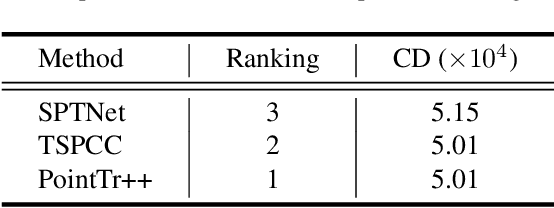
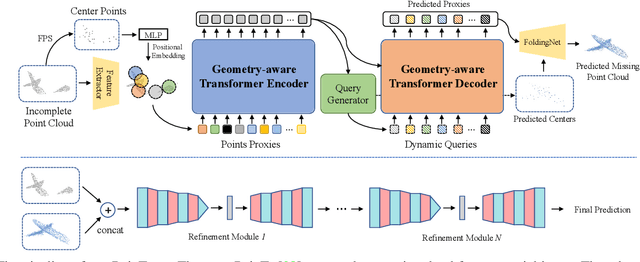
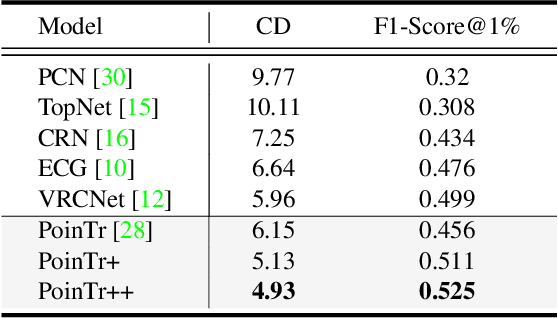
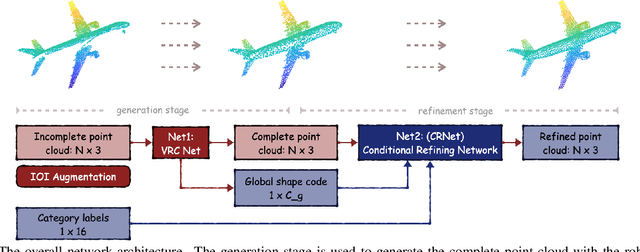
Abstract:As real-scanned point clouds are mostly partial due to occlusions and viewpoints, reconstructing complete 3D shapes based on incomplete observations becomes a fundamental problem for computer vision. With a single incomplete point cloud, it becomes the partial point cloud completion problem. Given multiple different observations, 3D reconstruction can be addressed by performing partial-to-partial point cloud registration. Recently, a large-scale Multi-View Partial (MVP) point cloud dataset has been released, which consists of over 100,000 high-quality virtual-scanned partial point clouds. Based on the MVP dataset, this paper reports methods and results in the Multi-View Partial Point Cloud Challenge 2021 on Completion and Registration. In total, 128 participants registered for the competition, and 31 teams made valid submissions. The top-ranked solutions will be analyzed, and then we will discuss future research directions.
Deep Models with Fusion Strategies for MVP Point Cloud Registration
Oct 18, 2021

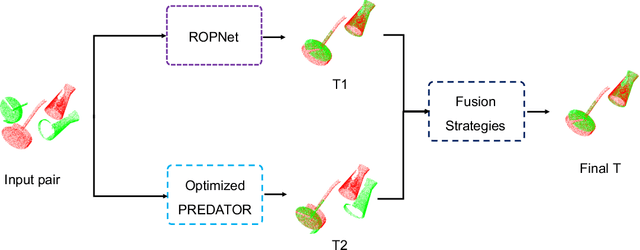

Abstract:The main goal of point cloud registration in Multi-View Partial (MVP) Challenge 2021 is to estimate a rigid transformation to align a point cloud pair. The pairs in this competition have the characteristics of low overlap, non-uniform density, unrestricted rotations and ambiguity, which pose a huge challenge to the registration task. In this report, we introduce our solution to the registration task, which fuses two deep learning models: ROPNet and PREDATOR, with customized ensemble strategies. Finally, we achieved the second place in the registration track with 2.96546, 0.02632 and 0.07808 under the the metrics of Rot\_Error, Trans\_Error and MSE, respectively.
Point Cloud Registration using Representative Overlapping Points
Jul 06, 2021



Abstract:3D point cloud registration is a fundamental task in robotics and computer vision. Recently, many learning-based point cloud registration methods based on correspondences have emerged. However, these methods heavily rely on such correspondences and meet great challenges with partial overlap. In this paper, we propose ROPNet, a new deep learning model using Representative Overlapping Points with discriminative features for registration that transforms partial-to-partial registration into partial-to-complete registration. Specifically, we propose a context-guided module which uses an encoder to extract global features for predicting point overlap score. To better find representative overlapping points, we use the extracted global features for coarse alignment. Then, we introduce a Transformer to enrich point features and remove non-representative points based on point overlap score and feature matching. A similarity matrix is built in a partial-to-complete mode, and finally, weighted SVD is adopted to estimate a transformation matrix. Extensive experiments over ModelNet40 using noisy and partially overlapping point clouds show that the proposed method outperforms traditional and learning-based methods, achieving state-of-the-art performance. The code is available at https://github.com/zhulf0804/ROPNet.
 Add to Chrome
Add to Chrome Add to Firefox
Add to Firefox Add to Edge
Add to Edge